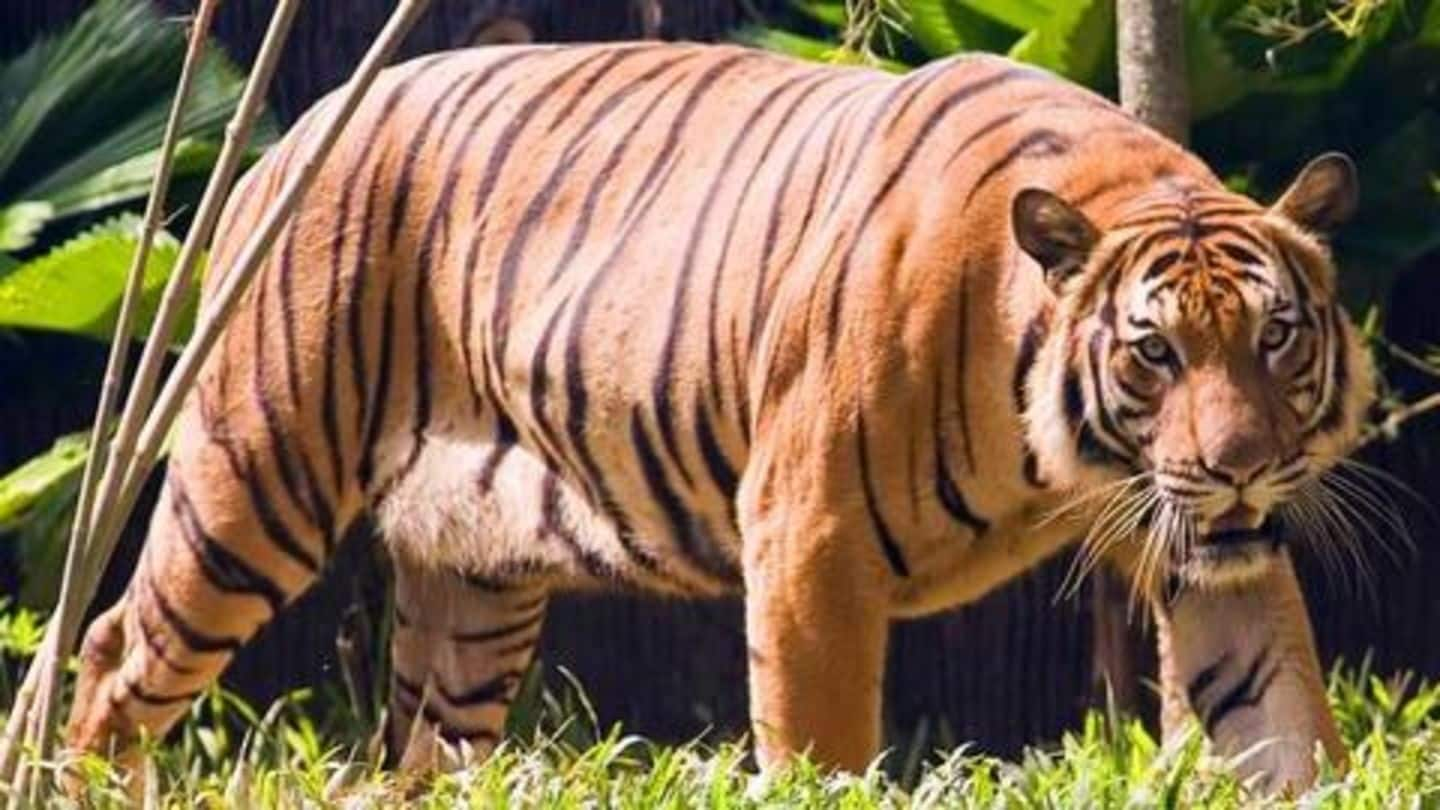
In a first, tiger tests positive for coronavirus in US
What's the story
A tiger at a zoo in New York, United States, has tested positive for the coronavirus disease (COVID-19). The positive COVID-19 test for the four-year-old female Malayan tiger named Nadia was confirmed by the United States Department of Agriculture's (USDA) National Veterinary Services Laboratories. According to the USDA, Nadia is the first tiger to have tested positive for the viral disease.
Details
Nadia and other cats at Bronx Zoo developed dry cough
According to the Wildlife Conservation Society's (WCS) Bronx Zoo in New York—where Nadia lives—the tiger was tested after she and other big cats at the zoo developed a dry cough. The other animals showing symptoms similar to Nadia are her sister Azul, two Amur tigers, and three African lions. Only Nadia was tested to avoid risks of general anesthesia in more than one animal.
Quote
'Cats experiencing decrease in appetite, otherwise doing well'
The zoo said, "Though they have experienced some decrease in appetite, the cats are otherwise doing well under veterinary care and are bright, alert, and interactive with their keepers." It added, "It is not known how this disease will develop in big cats since different species can react differently to novel infections, but we will continue to monitor them closely and anticipate full recoveries."
Test
Animal COVID-19 tests different from human tests, says zoo veterinarian
Bronx Zoo Chief Veterinarian Dr. Paul Calle wrote on Facebook saying that the test used for Nadia is different from the tests used for humans. The zoo said, "We tested the cat out of an abundance of caution and will ensure any knowledge we gain about COVID-19 will contribute to the world's continuing understanding of this novel coronavirus."
Infection
Tiger got infected through asymptomatic zoo-keeper
The zoo said that the cats were infected by a person caring for them who was asymptomatic but happened to be shedding the virus. It said that appropriate preventive measures are in place for all staff caring for other cats at four WCS zoos. Meanwhile, the WCS said that all four zoos and aquarium have been temporarily closed since March 16.
Human-animal transmission
USDA asks COVID-19 patients to maintain distance from pets
The USDA said there is no evidence that other animals at the zoo are showing COVID-19 symptoms. It clarified that although the novel coronavirus emerged from a Chinese animal market, there isn't enough evidence supporting human-animal transmission and Nadia's case is unique. The USDA, however, asked people to remain cautious regardless and asked COVID-19 patients to restrict contact with animals, including pets.
COVID-19
What is COVID-19?
COVID-19 was first reported in China's Wuhan city in December 2019. The disease is caused by a novel coronavirus called SARS-CoV-2. The virus attacks a host's respiratory system triggering symptoms such as fever, cough, and breathing difficulties. In severe cases, it may cause pneumonia, multiple organ failure, or death. COVID-19 has spread to over 170 countries, killing 70,000 and sickening 12 lakh.